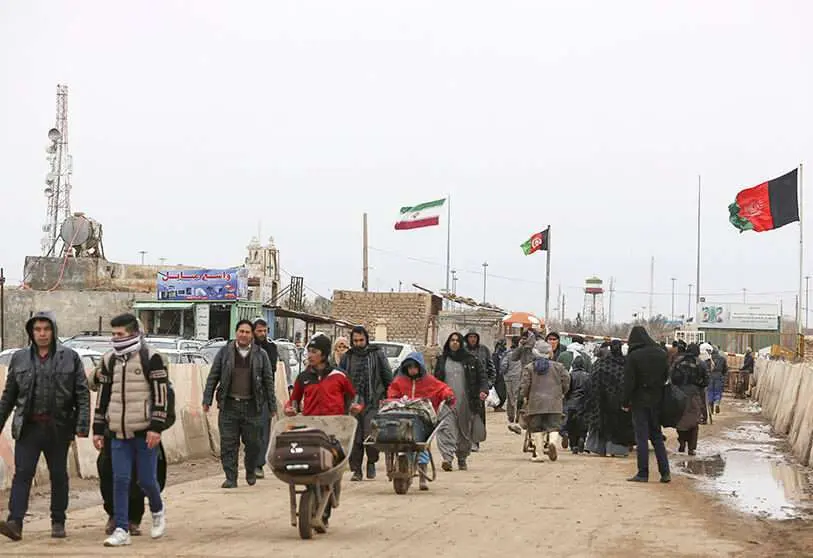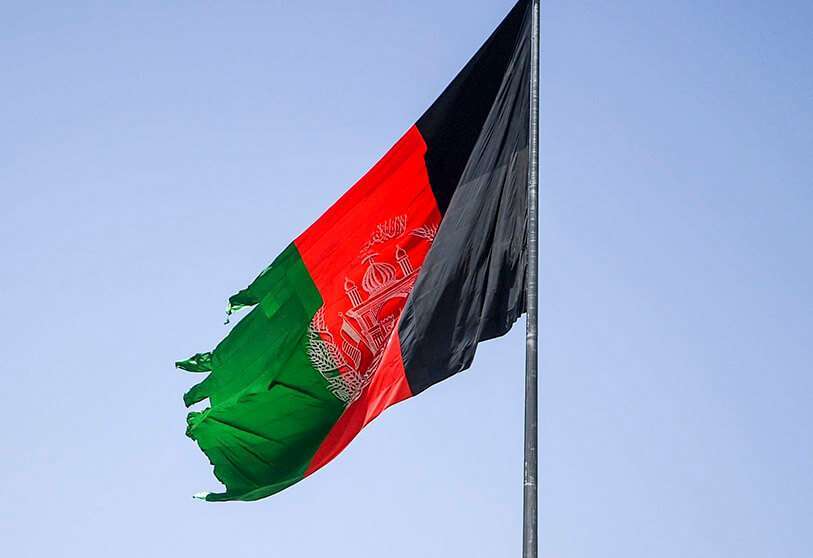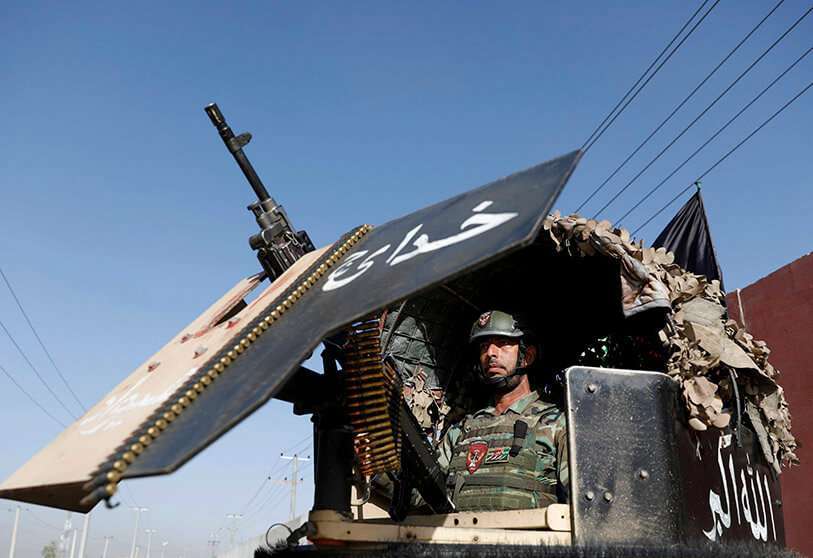More than 300,000 Afghans flee the country in the face of Taliban offensive

The Taliban are laying waste to Afghanistan. Provincial capitals are falling rapidly into the hands of the Taliban and, with the withdrawal of international troops from Afghan soil, the situation does not look set to abate. In the last few hours we learned that the terrorists had taken the city of Ghazni, only 150 kilometres from Kabul, after the Taliban reached an agreement with the governor, thus becoming the tenth provincial capital to be captured in less than a week and thus controlling 65% of Afghan territory.
In addition, in the city of Lashkar Gar, capital of Helmand province, the insurgent group has already raised its flag in the city centre after seizing Afghan police headquarters, resulting in the surrender of a pro-government commander and his men. At the same time, they captured weapons at Kinduz airport, prompting US aircraft to begin air strikes aimed at destroying the captured arsenal. This situation has led to the resignation of Afghan Finance Minister Khalid Panyeda, who has fled the country citing "personal priorities".

These rapid gains coincide with the withdrawal of US and international troops. Last week, the deployed brigades left the Afghan base at Bagram, which was once home to more than 10,000 people. Their rapid departure, along with those of other NATO troops, is evidence of an omen that has already become tangible: that the Afghan army will not be able to defend the country from the Taliban without international assistance.

For his part, Pentagon spokesman John Kirby clarified that "at this point, the authorities have orders to support the Afghans until the end of the month. No policy decision has been made as to what happens after that. For now, what he knows for sure is that US troops will be fully withdrawn by the end of August.
Undoubtedly, this Taliban expansion across the country is once again causing damage to the civilian population and its consequent displacement. The UN High Commissioner for Human Rights, Michelle Bachelet, has warned of the worrying situation in Afghanistan: "The parties to the conflict must stop fighting to avoid further bloodshed. The Taliban must cease their military operations in the cities. Unless all parties return to the negotiating table and reach a peaceful settlement, the already dire situation for so many Afghans will get much worse," he warned.

In addition, Bachelet said she was particularly concerned about early indications that the Taliban are already imposing their oppressive and restrictive rules on Afghan women and human rights in general in areas under their control: "People rightly fear that a Taliban takeover will erase the human rights gains of the last two decades," she said.
The insurgent advance is alarmingly jeopardising the human rights gains made during the two decades that the US military has been deployed in the country. Women in particular have been the main victims of the Taliban's power. For them, access to education was forbidden and they were relegated to caring for their children and the home. Thus, they fear that in the face of the rapid advance of the Taliban, they will return to the regression of their rights, an act that is already being experienced in the cities taken over by the insurgents, according to civil organisations.

The Taliban also impose the compulsory wearing of the burqa, which covers women's bodies from head to toe, public punishments, stonings against women accused of having sexual relations outside marriage, prohibiting them from talking to men who are not direct relatives or from carrying out any kind of activity outside their homes without the presence of their husbands, fathers or brothers.
Similarly, the Director General of the International Organisation for Migration, Antonio Vitorino, pointed out that "the escalation of fighting over the last few days in various provinces of the country has added indescribable suffering in a country where there are already more than five million internally displaced persons". Alongside this, he noted that the number of newly displaced people across the country has risen to more than 359,000 people, a figure that is straining the UN aid plan, which needs an additional $800 million.

Humanitarian organisations have also raised the alarm about what could become "a much bigger humanitarian crisis" with devastating consequences for Afghans, including children. According to Save the Children, 80,000 children have been displaced in the last two months. A total of 18 million people are in need of humanitarian assistance.
In addition to these figures, there are four million internally displaced people in the country who are in urgent need of health assistance due to the spread of the EVD-19 pandemic in Afghanistan.

"The camps are overcrowded and lack hygienic conditions and even the most basic medical facilities. Despite this deadly combination, internally displaced people have received little assistance to alleviate their plight," said Samira Hamidi, Amnesty International's Deputy Regional Director for South Asia.
In this context, the European Union is stepping up its efforts to exert diplomatic pressure to mediate and reach an agreement between Kabul and the Taliban. In this regard, Europe fears that the Taliban's advance could provoke a wave of refugees similar to the one that occurred in Syria. The European Commission is calling for increased support to neighbouring Iran and Pakistan. For the time being, Kabul has already announced that the current situation has led to a three-month suspension of the repatriation of Afghans arriving irregularly.
In addition, Germany and Austria, the main receiving countries for this type of refugee, have cancelled forced return operations for people who are not recognised as refugees. Pressure continues to be exerted from Brussels for the talks with the Taliban delegation in Qatar to reach peace agreements. However, the different Taliban groups are at odds with each other, so that joint interests are not represented in the talks, making it difficult to reach agreements.

This is evidence that what was agreed at the Moscow Conference is not being fulfilled. A joint statement by Russia, China, the US and Pakistan urged the Taliban delegation to "begin discussions without delay on the core issues of conflict resolution, including the basis for the future peaceful and stable state of Afghanistan" as well as to form "an inclusive government" and a "permanent and comprehensive" cessation of hostilities.
However, none of this is happening, NATO and the US have virtually withdrawn and the Taliban have already taken more than half of Afghan territory under their control, causing thousands of displacements, deaths and losses in human rights gains. Afghanistan is now at the mercy of Taliban groups and the international community watches impassively as the country plunges into a new wave of violence and violence against civilians.










